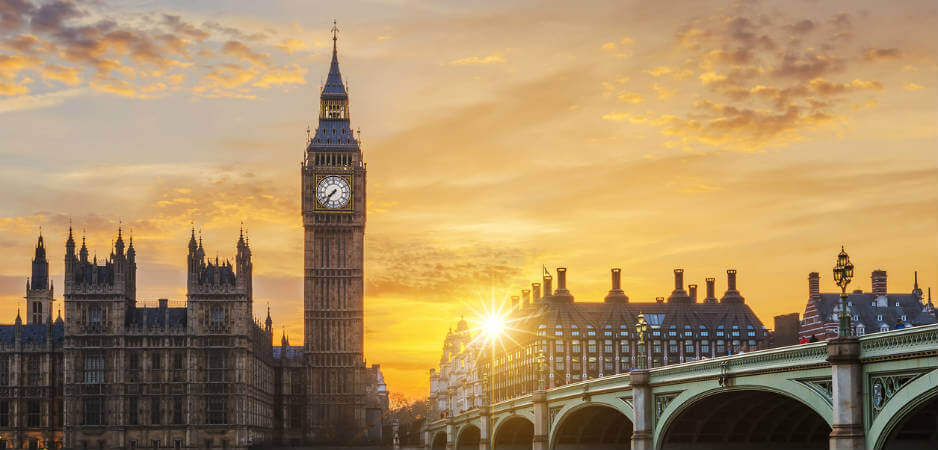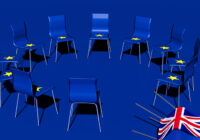The consequences for the balance of power in British politics will not be settled on June 8.
In the boisterous brouhaha of a general election with a very short campaigning period, if there is a unifying characteristic, it is its oddness.
The oddness was present from the declaration of the election. Theresa May had stated that there would be no election until 2020 and dismissed the prospect of a Scottish independence referendum before the completion of Brexit negotiations on the grounds of the damaging effects of such public squabbling. From her perspective, calling the election made sense in the huge lead she had over Labour’s Jeremy Corbyn as potential leader, but there are other factors. One is the need for a mandate for herself both as prime minister and party leader, as a perceived bolster to her authority in Brexit negotiations.
Internal divisions within Westminster Conservatives can be difficult to trace as they are usually kept behind closed doors, but May has a poor record of internal diplomacy, seen most strikingly with the loss of several close aides through resignation in the month of the declaration. The short-term opportunism of propitiatory policies to assuage critical colleagues has been a familiar practice, echoing the rationale behind promising the European Union referendum in the last manifesto.
The second oddness has been the particular focus on the single mantra of “strong and steady” and its attachment to and espousal by the single figure of May. Like the most successful campaign mantras, it is all the more effective for its vacuity and has been associated with May as an individual, with the economy, with governance and especially with Brexit. The almost robotic nature of its employment has, at times, been painful. Its selection as her catchphrase may be partially corrective, given her own shift from a minor figure in the Remain campaign to a somewhat bombastic nationalist, almost quixotic defender of the UK against the EU. Focus on the phrase was enhanced by the nature of the snap election, with the relatively late arrival of actual manifestoes.
Talking to Ordinary People
Of course, the employment of a mantra is far from unprecedented, building upon the legacy of Saatchi & Saatchi under Margaret Thatcher as well as the success of its adoption by Barack Obama in 2008. What makes the instance odd here in the UK is its attachment primarily to an individual rather than a party. The plea has been for a mandate for May rather than for the Conservatives. The relative invisibility of other ministers was brought to a height in the remarkable invisibility of the health secretary, Jeremy Hunt, for several days after hackers disabled the computers of the National Health Service (NHS).
This can be seen partly as a shift to a more presidential style competition, but the oddity of its application with May has been shown by the nature of her public engagements. With a rhetoric of “talking to ordinary people,” these engagements have been carefully managed and very exclusive. While it was ever thus, this has been taken to a greater extreme, with press questions being vetted and her momentary visit to Scotland, a gesture at consultation, being dominated by a “grilling” by Ruth Davidson, the leader of the Tories at Holyrood.
The gap between a presidential-style focus on the individual and its practice is epitomized in her refusal to appear on the televised debates between leaders. While explanations of this decision speak more of the position of the critic than of certainty, it is best understood as indicative of the tension between the profitability of personality politics against Corbyn and the somewhat formulaic media persona of May.
National Dialogue
On a national level, the prime issue the Conservatives have identified as most in need of strong and steady leadership is Brexit. It is, again, not unusual for particular issues to be brought center stage in electoral campaigns, but this is also odd. May was pro-Remain and, apart from the more substantial, empirically-grounded debates over the pros and cons of membership, the debate that was reported was an ego-match between different individuals and cliques within the Tory party. The mandate she is seeking is not support for the withdrawal itself — the constant semi-accurate refrain has been that “the people have spoken” — but that she will be stronger and steadier in the negotiations than her rival.
Neither of the main parties offers a second referendum. If Brexit as a decision was under contest, then greater attention would be given to the Liberal Democrats — the only national party to oppose the withdrawal at the time and to offer a second referendum as a party line. However, they are still suffering from the sense of betrayal from their coalition with the Tories in 2010, and most attention has been paid to Tim Farron’s opinions about sexuality and same-sex marriage from his evangelical Christian background rather than Brexit.
It may seem to have taken some time to turn to actual policies but that has been the experience, partly due to the sudden announcement of the election, the delay in producing manifestoes and the nature of the coverage. The Labour manifesto was leaked shortly before its official release, leading to more attention being paid to speculations about why this was done than actual policies. Its content is both progressive and relatively moderate.
The assault on the welfare state that has been conducted in England and Wales is countered by a gradual shift rather than a wholesale restoration, perhaps sensitive to accusations of cost; a promised re-nationalization of rail, delivered by not renewing contracts with private companies when they expire and, therefore, less expensive than has been suggested; and similar action over the energy industry and the abolition of tuition fees for higher education in England and Wales. The economic policy would be regarded elsewhere in Europe as fairly centrist, but the orthodoxy of most of the press denounces it as left-wing.
This was followed by the Tory manifesto, a somewhat strained set of stances. Economically, there is theft from Ed Miliband’s much-derided manifesto of 2015, with greater intervention, some restraints on energy companies, an improved minimum wage and attention to social housing. The much promised but never delivered elimination of the deficit has been cast forward to 2025.
But this claim to a fairer Britain sits alongside a strong effort to win back United Kingdom Independence Party (UKIP) voters with promises to reduce immigration, with higher salaries to win family visas, and a promise to further reduce corporation tax to 17%, taking it below that of Switzerland — compared to 28% in 2010, and significantly lower than, for example, France, Germany or Belgium.
All the attention went elsewhere, focused on the misnamed “dementia tax,” by which anyone who receives care in their own home will have to pay for it through the value of their home once they have passed away. This means the entire value of a person’s home, apart from the first £100,000, will be claimable by the state. This, with the removal of the triple-lock protection from pensions, and an end to universal winter-fuel payments, was seen as an assault on the predominantly Tory “grey-vote.”
The furor was followed by what was slightly inaccurately referred to as a U-turn and was actually the addition of a clause to water it down. The manner of the delivery of the news was as damaging as the change itself, with May claiming it was all there in the manifesto already. One under-appreciated element of the coverage has been the lack of attention to the social and economic consequences of austerity to the crisis of the NHS and the state of education in England and Wales.
The Lines of Opposition
The particular focuses of the press have been mentioned but need more attention, and newspaper party alignments are nothing new but the balance and its questionable impact are unusual. All but one of the red tops are owned by billionaire tax exiles and predominantly follow the script set by May’s team. For instance, the “dead cat strategy” of Lynton Crosby, her primary guide, where a sensationalist story is used to distract from a more damaging issue was snapped up, portraying Corbyn as sympathetic to terrorists because he was an early advocate of an inclusive peace process in Northern Ireland or, as The Sun put it, “has blood on his hands.”
The broadsheets are similarly, if less effusively, aligned, with The Guardian only gradually coming round to Corbyn’s leadership, despite giving space to columns by Paul Mason and George Monbiot. Even they have become somewhat more bellicose, with The Telegraph calling upon Brendan O’Neill, the pugnacious libertarian right-winger, to accost Corbyn, and Melanie Phillips, usually a provocative scaremonger for The Daily Mail, to compare the Scottish National Party (SNP) with the Nazis.
The collection of curiosities and oddnesses make it difficult to judge the likely outcome in detail. Willingness to predict with any assurance has diminished, post-Brexit, US and French elections.
The lines of opposition have been more sharply drawn, with even members of the judiciary being on the receiving end of the rhetoric of traitors and subversives over requiring due parliamentary process for the implementation of Brexit. The actual impact is difficult to assess, given that sales are much lower than they have been in the past and many people pay more attention to social media. This has meant that the staged and poorly attended nature of May’s public appearances has been made clear and the high turnouts and enthusiasm for Corbyn’s appearances can be duly contrasted. What is available and consulted on social media is also a broad church, however, bringing in Al Jazeera, Young Turks, RT, Britain First and lots of false-flag rumors.
To return to the first televised leadership debate, the refusal of May to appear, and the curious decision of Corbyn to absent himself in response, brought some lessons of change and missed opportunities. Those who attended meant that the more peripheral parties, either due to geographical focus, finance or levels of support, were given more attention. Much common ground and mutual support was shared between the SNP, Plaid Cymru and the Green Party of England and Wales. What was seen as most striking was the complete exclusion of Paul Nuttall, the leader of UKIP, from the social niceties at the end. He had performed very poorly, referring to Nicola Sturgeon, Leanne Wood and Caroline Lucas each as Natalie.
But UKIP have been almost irrelevant. This disappearance has two causes: The first is the adoption of their rhetoric by the Conservatives in an effort to win their votes; the second is Nuttall’s remarkable record of lying about himself and his failure to duplicate the relative “charm” of his predecessor that acted as a veil for the less concealed racism of many members and candidates. The common ground reopened a sub-tone in discussions across the broad left, hoping for some sort of a progressive alliance to oppose the Tories during and after the election.
The nearest it has come to fruition has been the limited finances of the Greens encouraging a selectivity in the seats they are competing to avoid threatening closer majorities in Labour seats. It will go no further, partly due to a complete lack of interest from Labour, and it would be both a strategic and rhetorical disaster for Labour and the SNP to formally cooperate, regardless of common ground.
Another accidental consequence of the limited attendance at the debate was greater awareness of the differences for this election relating to the geography of the UK. The only region where Brexit is genuinely center stage is Northern Ireland, but not as the Tory script would prefer. The consequences of Brexit for the stability of the Good Friday Agreement were not on the table during the referendum coverage, and the Tory rhetoric of closed borders has major consequences, economic and social, in Ireland.
To that can be added the discovery that different funding regulations allowed the Democratic Unionist Party (DUP) to accept seriously questionable funding during the campaign as well as Arlene Foster’s own financial scandal disrupting the functioning of the Assembly. In Wales, struggles between Plaid Cymru and Labour saw, at least initially, voters in traditionally Labour areas drawn toward the Tories over Brexit and a sense of alienation from what was seen as Labour’s cosmopolitan detachment at Westminster.
The greatest contrast is in Scotland. There the emphasis has been much more on a second independence referendum, despite the SNP and the Greens not making it central to their message. Making the general election about independence has been primarily fostered by the Tories presenting themselves as the best way to prevent a second independence referendum.
There has been something of a Tory resurgence for two reasons. The first is that it would be hard to do worse than in 2015. The second is that Davidson is a capable politician, restoring the term “& Unionist” to the title and identifying herself clearly with the anti-SNP vote.
Scottish Labour is struggling, partly in still dealing with the disastrous decision to have Jim Murphy as leader, as well as retaining a stronger Blairite element than Corbyn’s national entourage. There have also been elements of self-combustion, with stories emerging of Labour canvassers in some seats encouraging people to vote Tory as a more effective anti-SNP vote.
The collection of curiosities and oddnesses make it difficult to judge the likely outcome in detail. Willingness to predict with any assurance has diminished, post-Brexit, US and French elections. Despite signs from the polls of the Tory advantage collapsing, it would be difficult for them to lose, given the starting point. The fear that the Manchester attack, echoing the assault in Paris before the election, might drive voters to the safe hands of the Tories has been less fulfilled than expected.
There are two imponderables that draw in different directions. The first is the success of the predominantly Labour campaign to encourage young people to register to vote. The vitriolic denunciations of Corbyn in the mainstream media have, ironically, taken him beyond the shrug of “they’re all the same,” leading to a low turnout among the fashionably disenchanted.
Against this needs to be set the remarkably low awareness of May’s mantra: Political junkies were quickly bored and provided satirical responses, but the low awareness may prove the repetition to be profitable to recruit those outside the circles of settled activists.
As May is looking for a mandate and is likely to win overall, the question remains: How will her success in acquiring a mandate be judged and, equally importantly, by whom? The consequences for the balance of power in British politics will not be settled on June 8 and will be followed by political wrangling within and between parties, with uncertainty remaining the safest certainty.
The views expressed in this article are the author’s own and do not necessarily reflect Fair Observer’s editorial policy.
Photo Credit: vwalakte
Support Fair Observer
We rely on your support for our independence, diversity and quality.
For more than 10 years, Fair Observer has been free, fair and independent. No billionaire owns us, no advertisers control us. We are a reader-supported nonprofit. Unlike many other publications, we keep our content free for readers regardless of where they live or whether they can afford to pay. We have no paywalls and no ads.
In the post-truth era of fake news, echo chambers and filter bubbles, we publish a plurality of perspectives from around the world. Anyone can publish with us, but everyone goes through a rigorous editorial process. So, you get fact-checked, well-reasoned content instead of noise.
We publish 2,500+ voices from 90+ countries. We also conduct education and training programs
on subjects ranging from digital media and journalism to writing and critical thinking. This
doesn’t come cheap. Servers, editors, trainers and web developers cost
money.
Please consider supporting us on a regular basis as a recurring donor or a
sustaining member.
Will you support FO’s journalism?
We rely on your support for our independence, diversity and quality.







